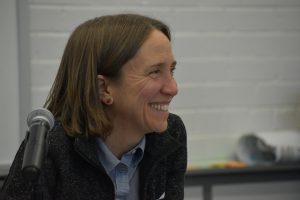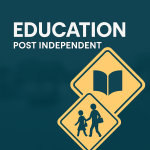Roaring Fork school board discusses Culturally and Linguistically Diverse Education resolution
The Roaring Fork Schools District Board of Education discussed a new resolution on Culturally and Linguistically Diverse Education (CLDE) during their work session on Wednesday, ultimately deciding to table a vote until their Nov. 12 meeting in order to drive more community engagement on the topic before the resolution is enacted.
“We know the difference (between policy and amendment), but the perception of those two things outside of this room are far greater,” board member Lindsay DeFrates said. “I think the route of no surprises would be best.”
The drafted resolution, available to the public on the Roaring Fork Schools website, discusses that although approximately 50% of the students they serve are “bilingual thinkers.” Data shows inequality in achievement and growth when comparing native English speakers to multilingual learners.
Bilingual thinkers include students ranging from non-English proficient to students who have a primary home language other than English, but may consider English to be their primary language.
“Disparities still exist between multilingual learners/emerging bilingual students and native English speaking students on CMAS, PSAT/SAT growth and achievement data when we examine the achievement data of all language statuses as one group,” the resolution reads.
It continues to explain that the longstanding emphasis on standardized tests can be “inherently biased” and can “lead to an incomplete understanding of students’ abilities.”
“Academic standardized tests with inherent cultural and linguistic biases prohibit meaningful access to the exam by emerging bilingual students classified as ‘NEP’ — No English Proficiency, and ‘LEP’ — Limited English Proficiency — and can lead to an incomplete understanding of students’ abilities and the effectiveness of the programs that serve them,” the resolution continues.
The document concludes by affirming that researched-based dual-language programs are the “best practice for educating multilingual learners” and the board “commits to its support and expansion in our schools.” Basalt Elementary School, Riverview School, and Basalt Middle School currently offer dual-language programs..
“The board supports the strategic use of the students’ full linguistic repertoire, noting that when Dual Language Programming is not feasible, other forms of bilingual programming should be implemented along with a foundation of a Translanguaging Pedagogy to increase comprehensible input throughout the students’ day. Schools should make every effort to provide Spanish literacy programming for native Spanish-speaking students when Dual Language programming is not feasible.”
The resolution follows in the footsteps laid out by Horace Mann, the creator of the common school movement that sought equitable education opportunities in the 19th century and was later monikered ‘the father of public schools.’ His movement continued in the 1970s when the U.S Supreme Court ruled that second language learners have the right to comprehensible instruction that generates learning environments after hearing the 1974 U.S. Supreme Court case Lau v Nichols.
RFSD Superintendent Anna Cole described the resolution as a “culture change,” and said that she hopes it will give the CLDE department “more teeth.”
“It’s key that there is a culture change in accountability in CLDE,” Cole said during the work session.
“What has happened historically was that school based programming would receive a recommendation from the CLDE department saying ‘Hey, you should think about a different program.’ To now hopefully having a lot more teeth and say ‘there is a different program that better supports your students.'”
Cole explained that it would allow her to further support her team’s efforts to dive deep into the data and have an accountability factor that would help the board make future decisions.
“We’re asking now for the plans to make sure that the programs are moving to the appropriate programs for their students and that they’re reporting to the board annually.”
Board member Kenny Teitler emphasized how important proper wording is in a resolution that relates to sensitive topics.
“I’m pleased with the evolution of the resolution and I appreciate the work that has gotten us to this point,” he said. “I really appreciate some of the wording like ‘Schools should make every effort to make adjustments when dual language is not available.’ As well as including comprehensible input. That’s not necessarily the exam, but somehow part of how we’ve been instructing along the way hasn’t offered that meaningful access.”
He continued to highlight how the resolution won’t overshadow proper implementation methods.
“Saying that we must take into account community engagement, outcomes, expertise, capacity, human resources, professional development, etc. in order to be implemented is very important.”
Following Wednesday’s discussion, the board decided to push back action until their next regularly scheduled meeting on Wednesday, Nov. 12, in pursuit of connecting with district leaders and hearing from the community before enacting the resolution.
The meeting will be held at the Carbondale District Office at 400 Sopris Ave.

Support Local Journalism

Support Local Journalism
Readers around Glenwood Springs and Garfield County make the Post Independent’s work possible. Your financial contribution supports our efforts to deliver quality, locally relevant journalism.
Now more than ever, your support is critical to help us keep our community informed about the evolving coronavirus pandemic and the impact it is having locally. Every contribution, however large or small, will make a difference.
Each donation will be used exclusively for the development and creation of increased news coverage.









